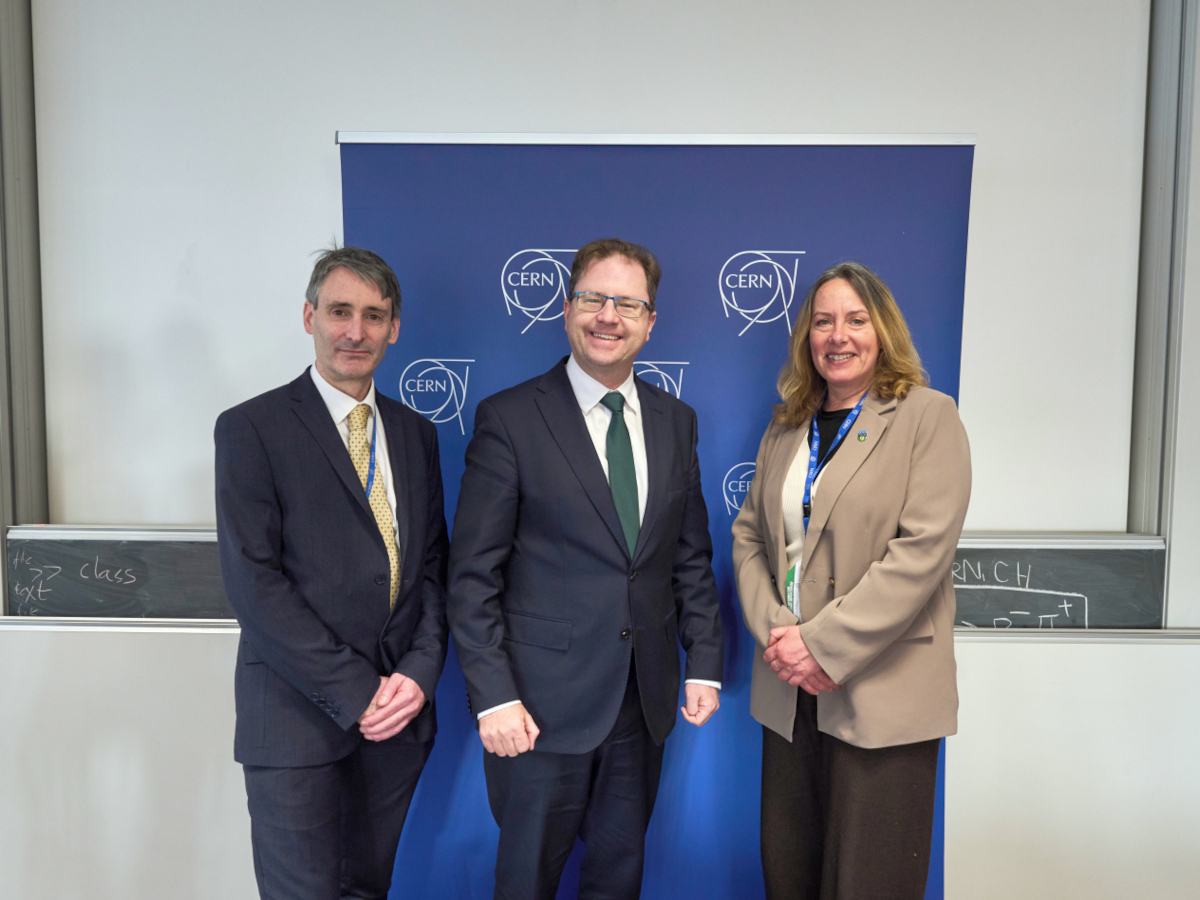![]()
Ireland’s membership is set to take effect in October.
Ireland’s contract of membership to join the European Organisation for Nuclear Research (CERN) was ratified by the Government yesterday (15 July).
With just a few steps ahead, the country is on its way to commence its associate membership with the world-leading research organisation this October, nearly two years after first applying to join CERN.
Ireland’s membership to CERN opens up vast opportunities for Irish citizens.
With the membership, Irish citizens can apply for jobs with the research centre and Irish academics can apply for CERN research projects. Moreover, Irish businesses will be able to compete in CERN procurement programmes.
CERN is run by 25 European countries that are full members of the organisation.
Ireland, however, joins CERN as an associate member alongside Brazil, India and Croatia, among five others. The associate membership will cost Ireland about €1.9m annually for an initial period of five years.
Following yesterday’s decision, the Taoiseach Micheál Martin signed a Government Order to enable Ireland to meet its obligations under the CERN Protocol on Privileges and Immunities.
The remaining steps are now for Ireland to notify the director-general of CERN that the internal approval procedures for the associate membership agreement are complete and to deposit an instrument of accession to the CERN Protocol on Privileges and Immunities with UNESCO.
“Having personally advocated for Ireland’s associate membership of CERN for a long time, it is a pleasure to officially announce that Ireland will join CERN in October this year,” said Minister for Further and Higher Education, Research, Innovation and Science James Lawless, TD.
The country’s application to join CERN was accepted in February this year, later signing an agreement to join the organisation in May.
Prof Kate Robson Brown, the University College Dublin (UCD) vice-president for research, innovation and impact joined Minister Lawless at CERN in February to mark Ireland’s membership acceptance at CERN.
“UCD and our world leading physicists have been a driver of Irish membership for decades. Members of our particle physics research group were collaborators in the historic discovery of the Higgs boson at CERN,” she said, commenting on the membership.
“This is a very important step for Ireland, to take our place in Europe’s largest scientific organisation, which enables collaborations with the best researchers, institutions and companies all over the world.”
UCD has also announced that it is making a new experimental particle physics hire at its School of Physics. The appointee is set to undertake a research programme in high-energy experimental particle physics, as a member of one of the CERN Large Hadron Collider (LCH) experiments.
Ronan McNulty, a professor of physics at UCD, has been one of Ireland’s longest serving scientists in LHC experiments at CERN.
“[The membership is] deeply significant both for the scientific health of our nation and the opportunities it unlocks for physics, engineering, computing and accelerators for health,” McNulty said.
“Now Irish students can study and take internships at CERN, researchers can work with international teams on frontier challenges and Irish companies will not alone receive CERN contracts, but more importantly, benefit from high-tech knowledge exchange.”
Don’t miss out on the knowledge you need to succeed. Sign up for the Daily Brief, Silicon Republic’s digest of need-to-know sci-tech news.
